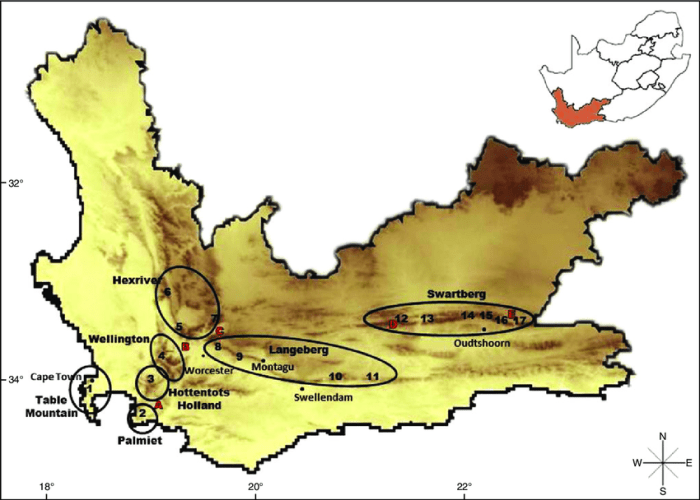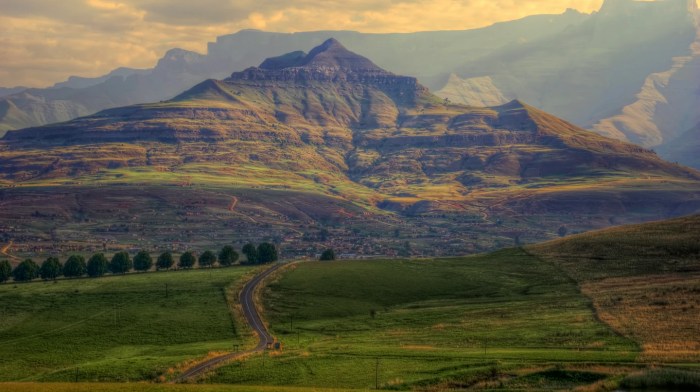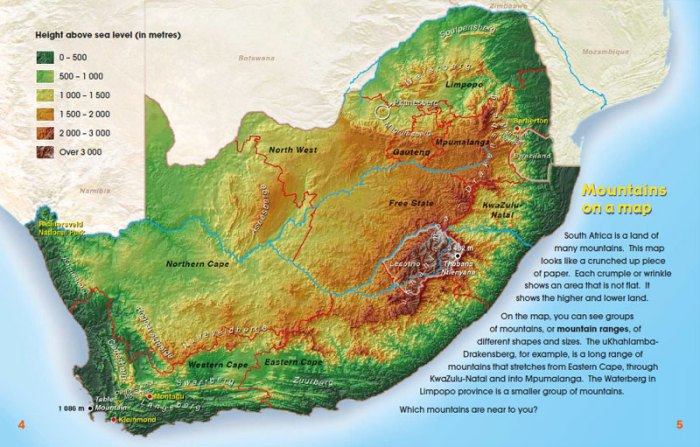How many mountain ranges are in africa – Africa, a continent of unparalleled diversity, boasts an impressive array of mountain ranges that shape its landscapes and ecosystems. With a plethora of peaks reaching towards the heavens, Africa’s mountains hold a captivating allure, inviting us to delve into their geological origins, ecological significance, and cultural heritage.
From the towering heights of the Drakensberg to the volcanic peaks of the Virunga Mountains, Africa’s mountain ranges offer a testament to the planet’s dynamic geological processes. These ranges play a crucial role in shaping local climates, providing habitats for a rich tapestry of flora and fauna, and serving as cultural touchstones for communities throughout the continent.
Africa’s Major Mountain Ranges

Africa is home to a diverse range of mountain ranges, each with its unique geological and ecological characteristics. These ranges span the continent from the Atlas Mountains in the north to the Drakensberg Mountains in the south, and from the Ethiopian Highlands in the east to the Cameroon Volcanic Line in the west.
- Atlas Mountains (4,167 m – Mount Toubkal)
- Ethiopian Highlands (4,543 m – Mount Ras Dashen)
- Virunga Mountains (4,507 m – Mount Karisimbi)
- Drakensberg Mountains (3,482 m – Thabana Ntlenyana)
- Cameroon Volcanic Line (4,070 m – Mount Cameroon)
- Tibesti Mountains (3,415 m – Emi Koussi)
- Aïr Mountains (2,022 m – Mount Bagzane)
- Ahaggar Mountains (2,918 m – Mount Tahat)
- Richtersveld Mountains (2,750 m – Konkiep)
- Namib Mountains (2,606 m – Gamsberg)
Geological Formation of African Mountain Ranges

The formation of mountain ranges in Africa is a complex process that has occurred over millions of years. The majority of African mountain ranges were formed as a result of plate tectonics, volcanic activity, and erosion.
Plate tectonics is the movement of the Earth’s tectonic plates. When two plates collide, one plate can be forced beneath the other, causing the formation of mountains. This process is known as subduction. Subduction has played a major role in the formation of the Atlas Mountains, Ethiopian Highlands, and Virunga Mountains.
Volcanic activity is another major factor in the formation of mountain ranges in Africa. When magma rises to the surface of the Earth, it can erupt to form volcanoes. Over time, these volcanoes can build up to form mountain ranges.
The Cameroon Volcanic Line is an example of a mountain range that was formed by volcanic activity.
Erosion is the process of wearing away of the Earth’s surface by water, wind, and ice. Erosion can help to shape mountain ranges by removing rock and soil from their slopes. This process can create valleys, canyons, and other features that make mountain ranges more rugged and dramatic.
Ecological Significance of African Mountain Ranges
African mountain ranges are home to a wide variety of ecosystems, including forests, grasslands, and deserts. These ecosystems support a rich diversity of plant and animal life.
The vegetation of African mountain ranges varies with altitude. At lower elevations, there are often tropical forests. These forests are home to a variety of trees, shrubs, and vines. At higher elevations, the vegetation becomes more sparse. There are often grasslands at mid-elevations, and deserts at high elevations.
The animal life of African mountain ranges is also diverse. There are a variety of mammals, birds, reptiles, and amphibians found in these ecosystems. Some of the most iconic animals of Africa, such as the lion, elephant, and giraffe, can be found in mountain ranges.
Mountain ranges are also important for water resources and climate regulation. They act as watersheds, collecting rainwater and snowmelt. This water can then be used for irrigation, drinking water, and hydroelectric power generation. Mountain ranges also help to regulate the climate by absorbing heat and releasing it slowly.
Cultural and Historical Significance of African Mountain Ranges

African mountain ranges have played an important role in the cultural and historical development of the continent. They have been the sites of human settlement, religious ceremonies, and military battles.
Many African mountain ranges are considered to be sacred by local people. They are often the homes of gods and spirits. In some cultures, it is believed that the mountains are the ancestors of the people who live there.
Mountain ranges have also been the sites of important military battles. For example, the Battle of Adwa was fought in the Ethiopian Highlands in 1896. This battle was a victory for the Ethiopians, and it helped to secure the country’s independence.
Mountain ranges have also influenced human settlement patterns. For example, the Atlas Mountains have been a barrier to trade and travel between North Africa and sub-Saharan Africa. This has led to the development of distinct cultures on either side of the mountains.
Conservation Challenges and Opportunities in African Mountain Ranges: How Many Mountain Ranges Are In Africa
African mountain ranges are facing a number of conservation challenges, including climate change, deforestation, and pollution. Climate change is causing the glaciers and snowpack in mountain ranges to melt, which is leading to changes in water resources and ecosystems. Deforestation is also a major problem, as it can lead to soil erosion and loss of biodiversity.
Pollution from industrial activities and agriculture can also damage the ecosystems of mountain ranges.
There are a number of opportunities for sustainable management of African mountain ranges. These include promoting sustainable agriculture, reducing deforestation, and protecting water resources. There are also a number of conservation organizations that are working to protect African mountain ranges.
These organizations are working to raise awareness of the importance of these ecosystems and to promote sustainable management practices.
Commonly Asked Questions
How many major mountain ranges are there in Africa?
Africa is home to over 50 major mountain ranges, including the Drakensberg, Virunga Mountains, Atlas Mountains, and Ethiopian Highlands.
What is the highest mountain range in Africa?
The Drakensberg Mountains, located in southern Africa, are the highest mountain range on the continent, with peaks reaching over 3,000 meters.
What is the geological origin of Africa’s mountain ranges?
Africa’s mountain ranges have been formed by a combination of geological processes, including plate tectonics, volcanic activity, and erosion.
What is the ecological significance of Africa’s mountain ranges?
Africa’s mountain ranges provide habitats for a wide range of flora and fauna, and play a crucial role in regulating local climates and water resources.
What are the cultural and historical significance of Africa’s mountain ranges?
Africa’s mountain ranges have played a significant role in the cultural and historical development of the continent, serving as landmarks, sources of spiritual inspiration, and refuges during times of conflict.